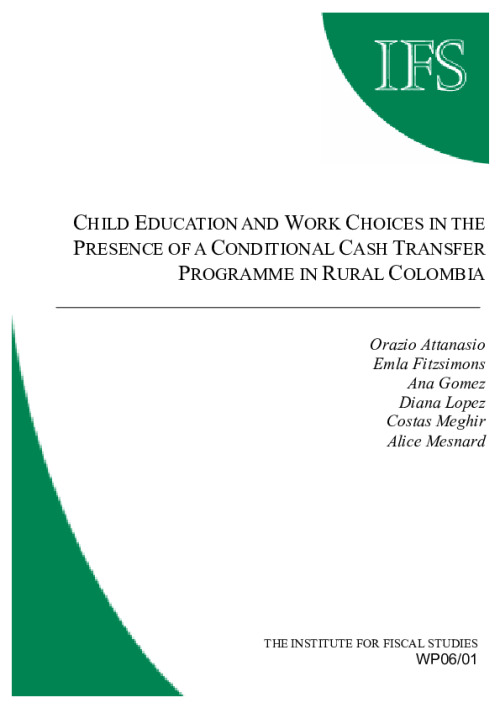This research is part of a large evaluation effort, undertaken by a consortium formed by IFS, Econometria and SEI, which has considered the effects of Familias en Acción on a variety of outcomes one year after its implementation. In early reports, we focussed on the effects of the programme on school enrolment. In this paper, we both expand those results, by carefully analysing anticipation effects along with other issues, and complement them with an analysis of child labour - both paid and unpaid (including domestic) work. The child labour analysis is made possible due to a rich time use module of the surveys that has not previously been analysed. We find that the programme increased the school participation rates of 14 to 17 year old children quite substantially, by between 5 and 7 percentage points, and had lower, but non-negligible effects on the enrolment of younger children of between 1.4 and 2.4 percentage points. In terms of work, the effects are generally largest for younger children whose participation in domestic work decreased by around 10 to 12 percentage points after the programme but whose participation in income-generating work remained largely unaffected by the programme. We also find evidence of school and work time not being fully substitutable, suggesting that some, but not all, of the increased time at school may be drawn from children's leisure time.












